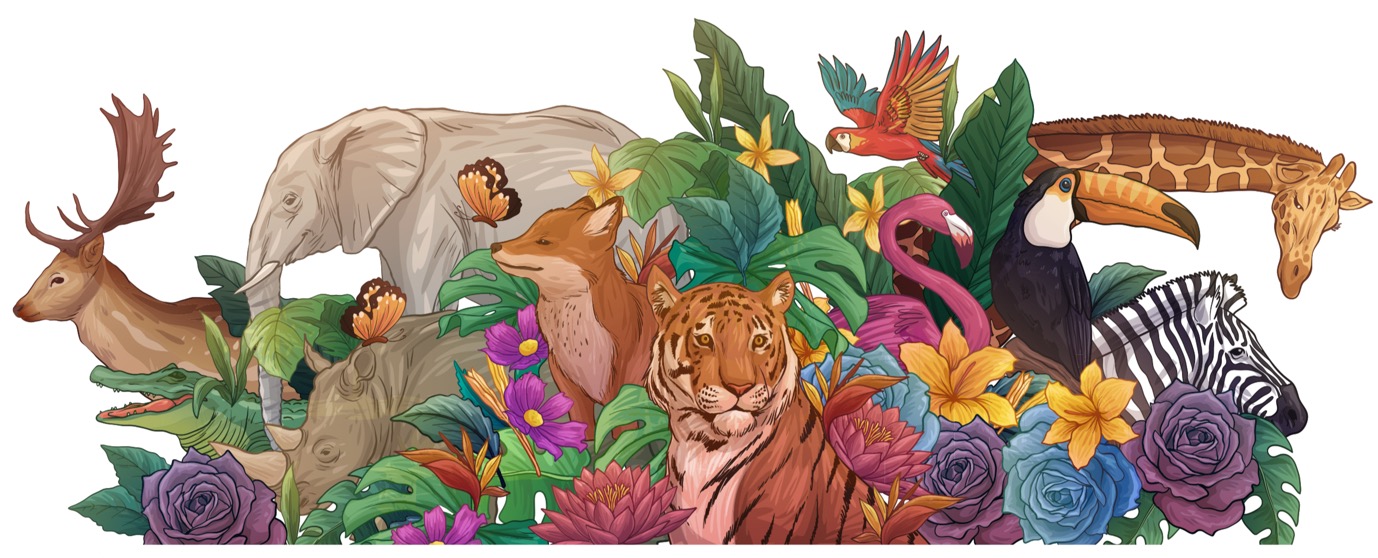
Over a 10-year period, the Earth BioGenome Project (EBP) aims to do for biology what the Human Genome Project (HGP) did for mankind.
We are currently in the fourth year of this amazing initiative which brings together 44 institutions, including BGI-Research and the China National GeneBank, from 22 countries with the aim of using genomic sequencing to sequence, catalogue and characterize all known eukaryotic biodiversity.
This is not a simple task as it involves around 1.8 million species, ranging from mushrooms to apple trees, tigers to flowers, in fact any classified organism whose cells have a nucleus surrounded by a nuclear membrane.
All of the data will be made available on an open access basis for ongoing study. The benefits from this enormous body of research promises to be stunning with the prospects of developing new treatments for infections and inherited diseases, generating new approaches to feeding the world, and generating new bio materials or biological synthetic fuels.
All of us will have a much greater understanding of the ecosystems of the natural world that surrounds us and, importantly, mankind will be helping to conserve and protect biodiversity, identify new species, and reduce the prospects of extinction for many species.
One of the largest projects within the EBP that BGI-Research and the China National GeneBank are involved in is 10KP, which aims to sequence more than 10,000 plant species. An update on this work has recently been published by the Proceedings of the National Academy of Sciences of the United States of America. Together with other large-scale plant genome projects led by scientists from the US and UK, we anticipate to sequence all the estimated 450,000 to 500,000 species of green plants.
To date, fewer than 0.2% of green plant species have whole-genome sequence data, yet the scientists are confident that the final goal of sequencing and annotating the genomes of all currently known eukaryotic species can be completed for green plants in the original 10-year timeframe.
BGI’s participation in the EBP is part of our quest to comprehend and preserve our world for future generations to enjoy.
This can only be achieved through fully understanding nature through whole-genome sequencing. BGI-Research has been doing this for more than two decades. Some of our most recent research collaborations have:
- constructed a high-quality chromosome-level genome map of Dipterocarpaceae which lays an important foundation its breeding and protection;
- assembled high-quality Begonia genome which provides an important reference for the study of Begonia and the breeding of new and superior varieties;
- revealed the utilization value of the medicinal and aromatic compounds of chloranthus plants and provided scientific support for the protection of species;
- revealed a 6,000 years’ domestication history of lettuce cultivation;
- used pedigreed genome sequencing data to assemble two sets of high-quality genomes from the parents of the common marmoset in order to expand people’s understanding of the genetic differences between the parents;
- uncovered the evolution of vertebrates from aquatic to terrestrial from different perspectives and evolutionary nodes;
- deepened the global understanding of chickpeas and promoted chickpea breeding practices by publishing a chickpea genetic variation map based on the sequencing of 3,366 genomes.
This is just a fraction of the ground-breaking research undertaken by BGI which has led to us being ranked #1 for the past six years in the Nature Index annual tables of life science industry organizations in Asia-Pacific.



